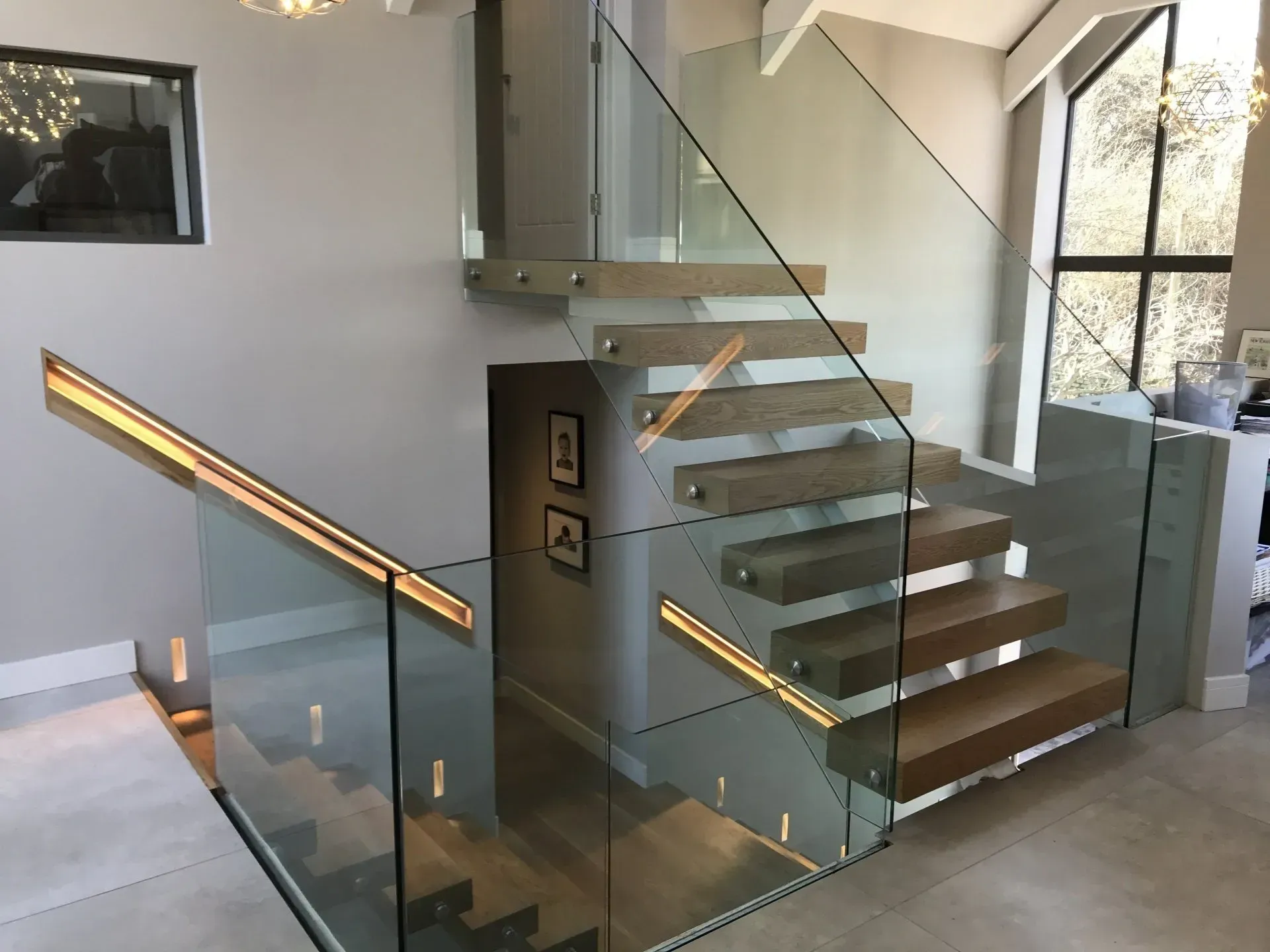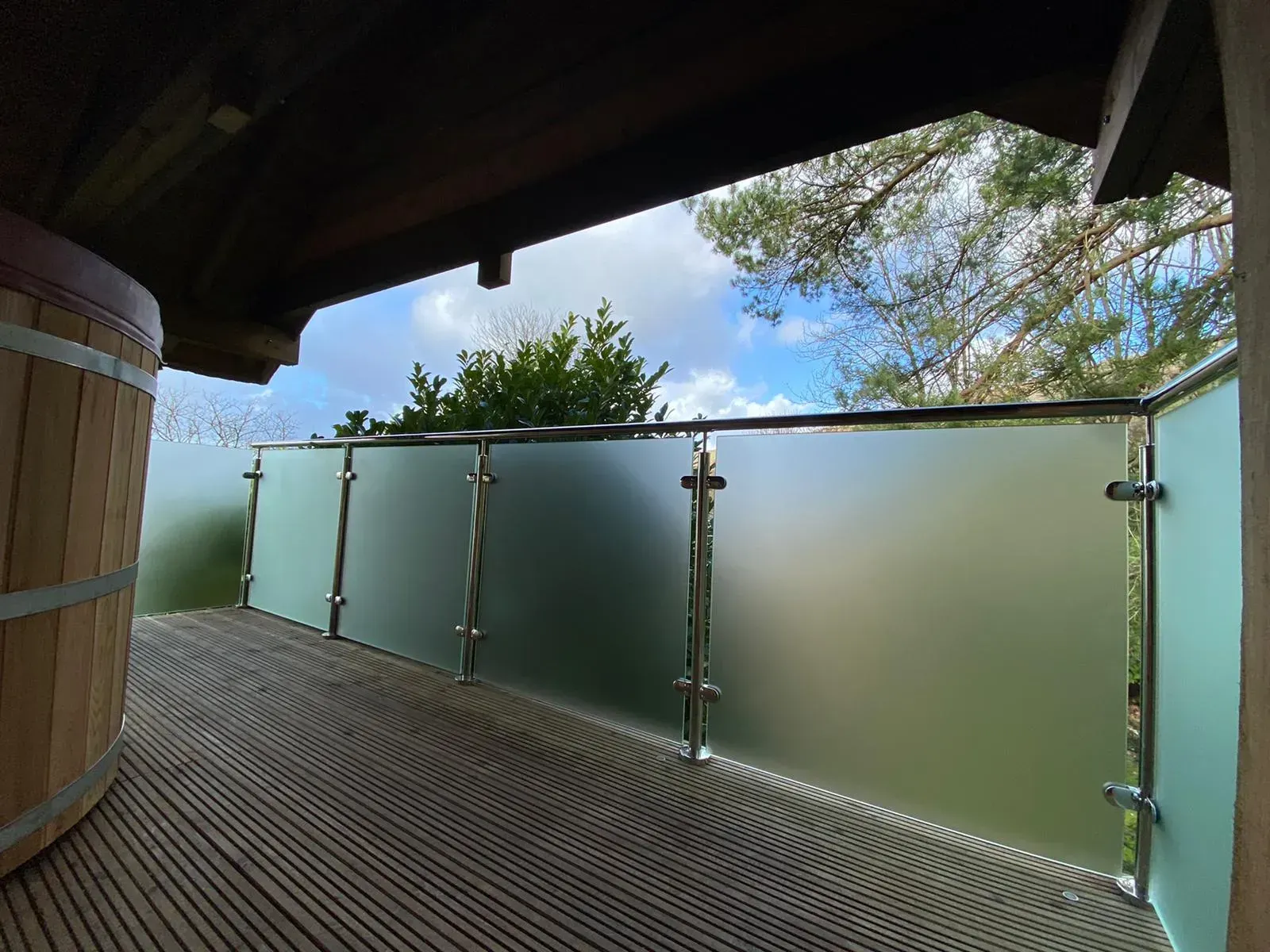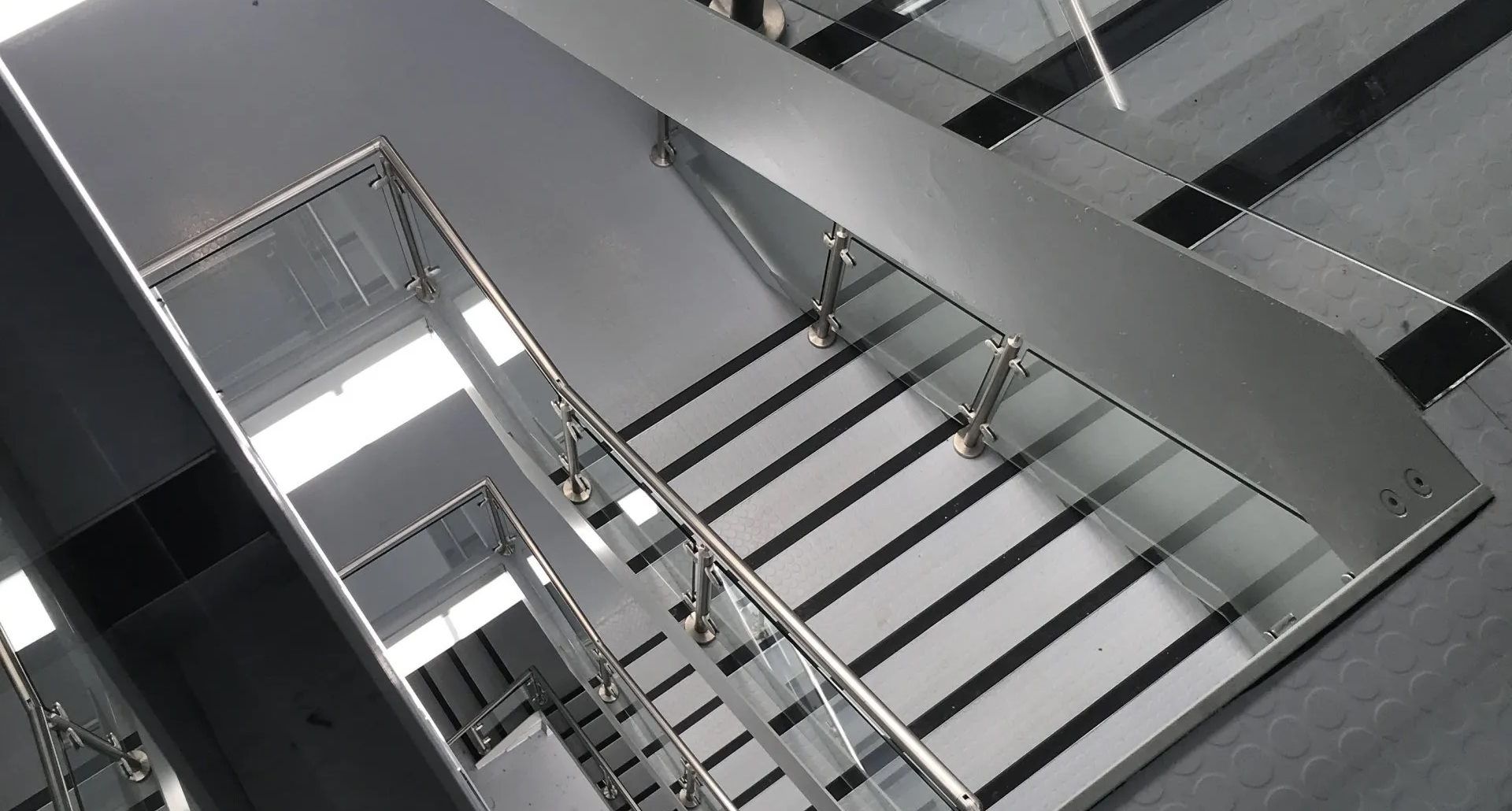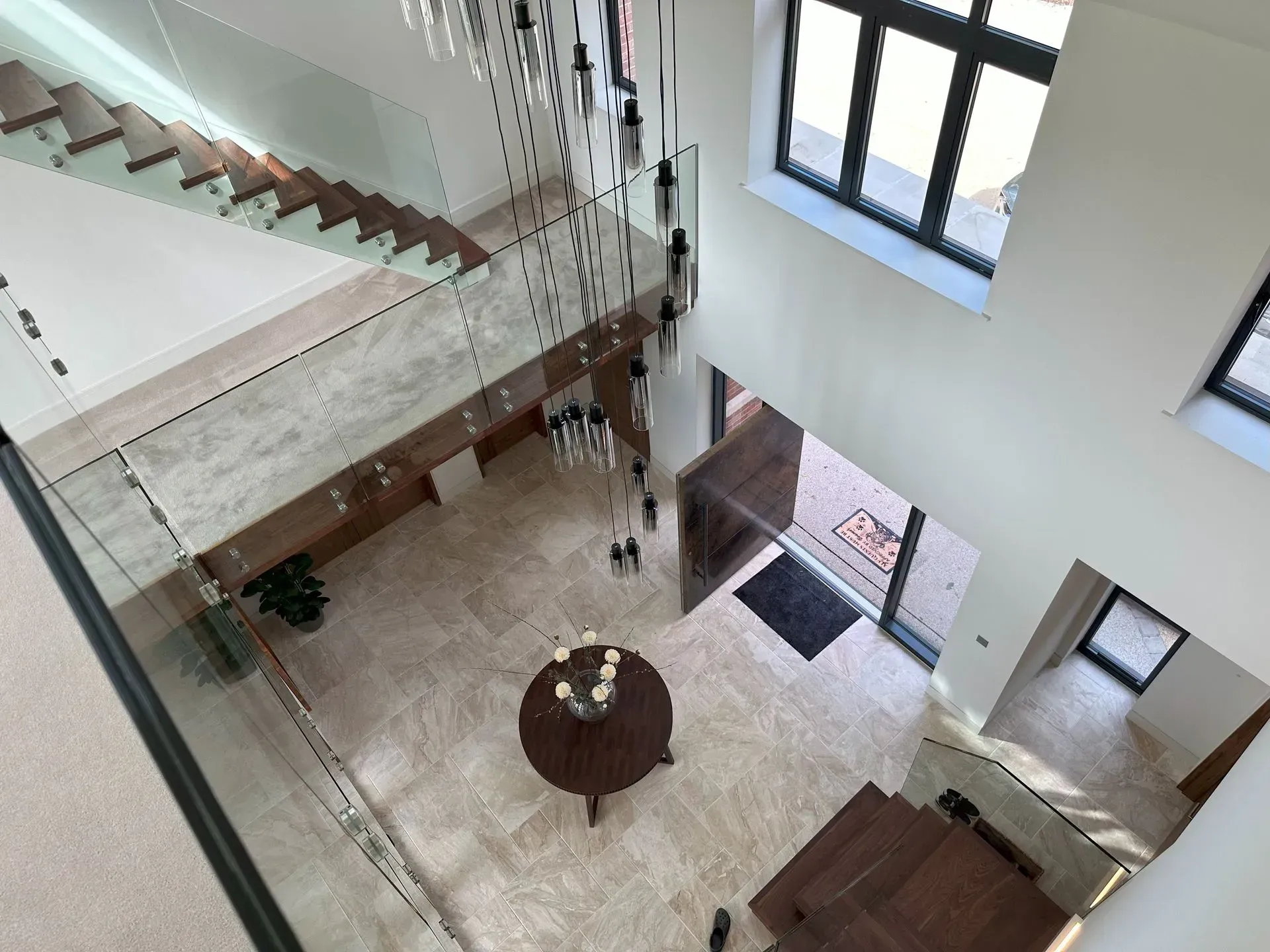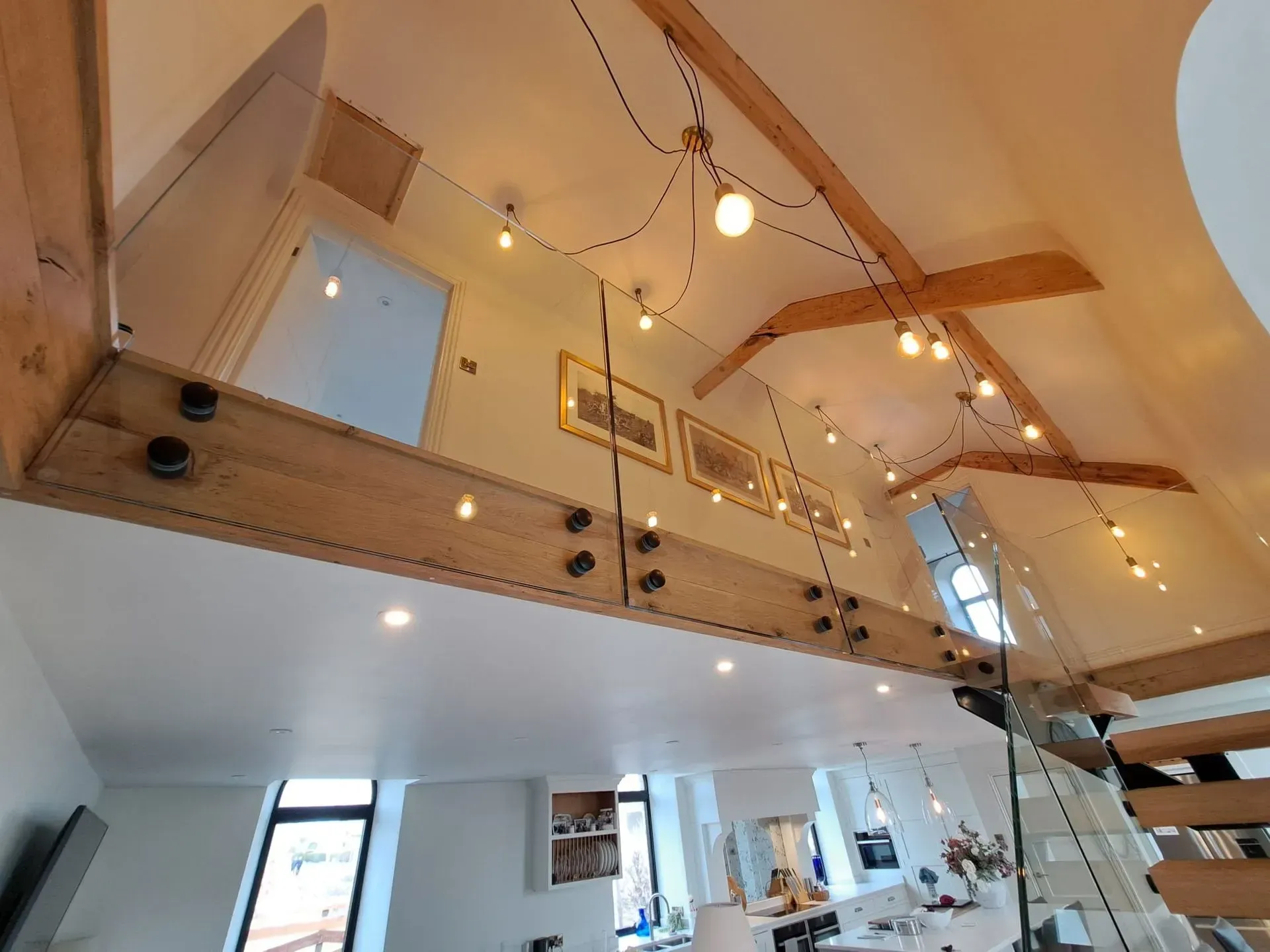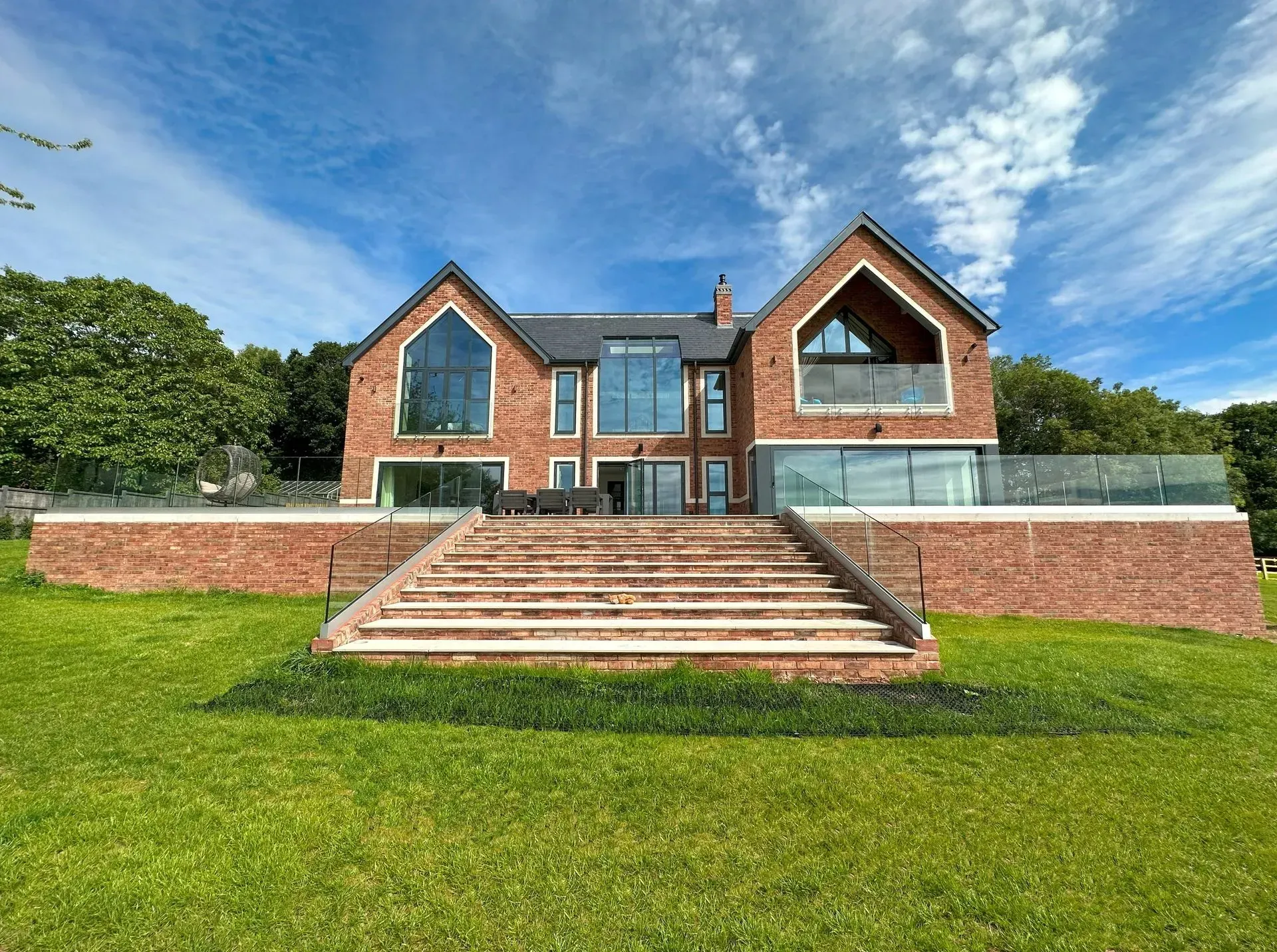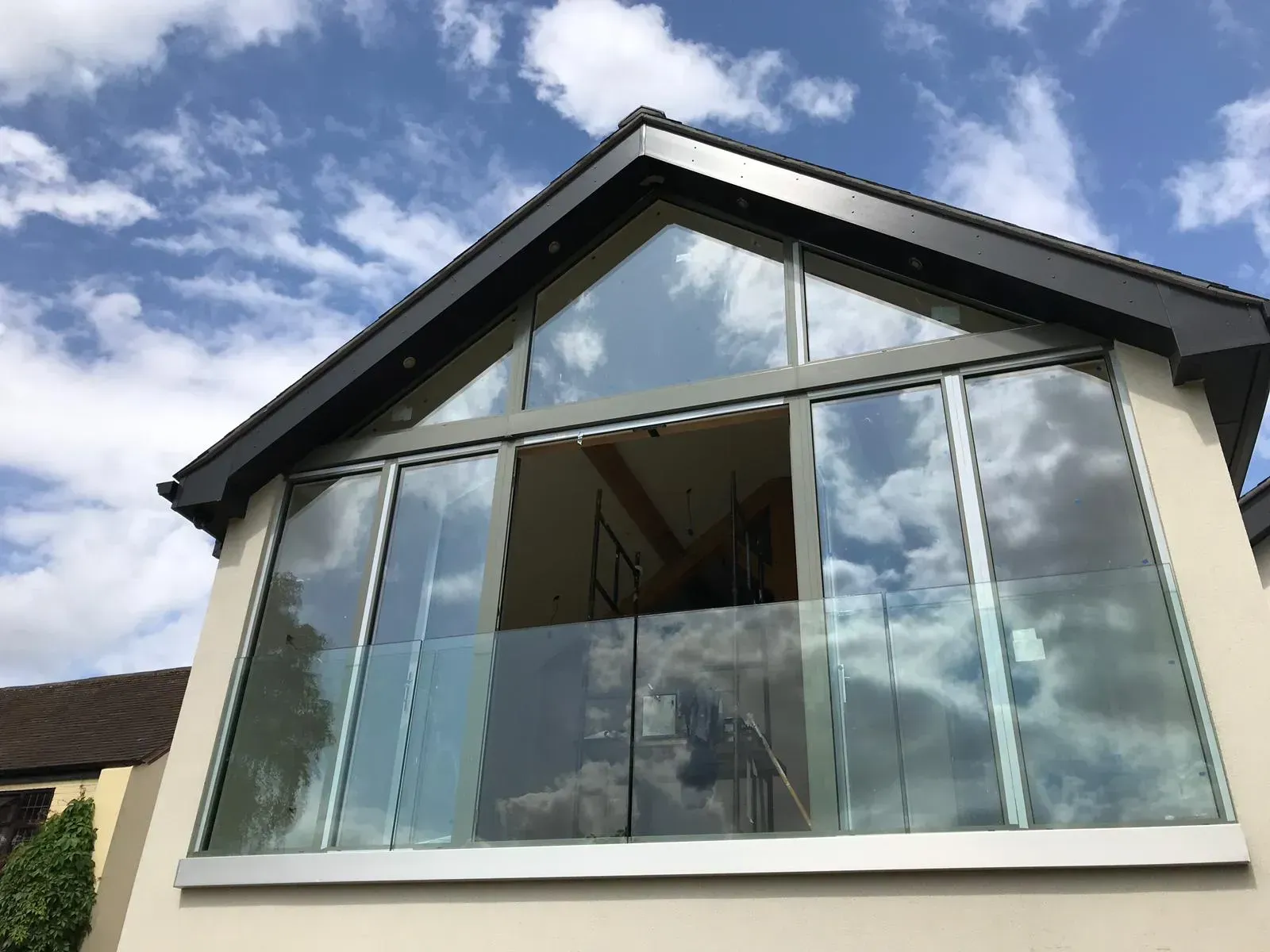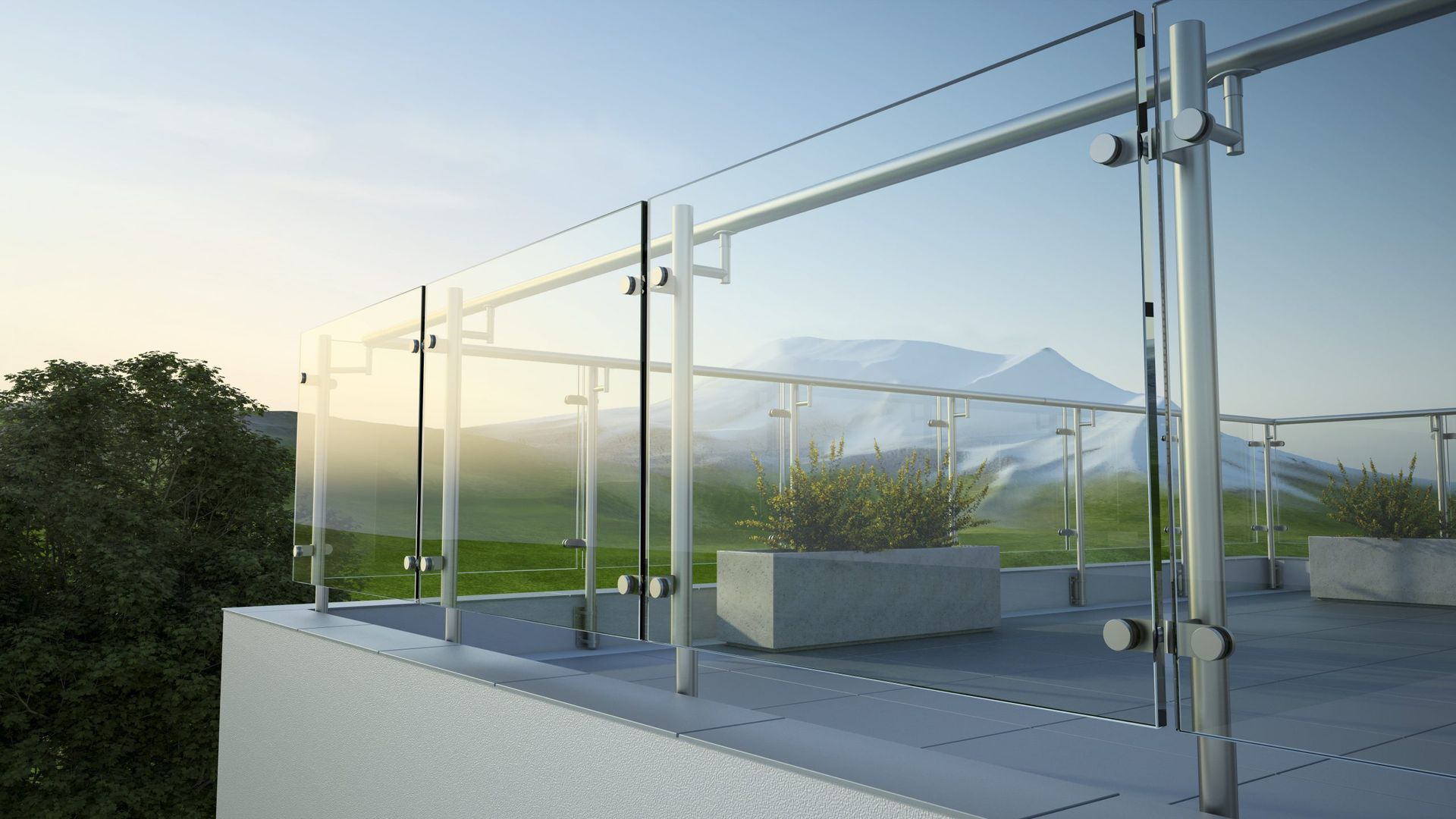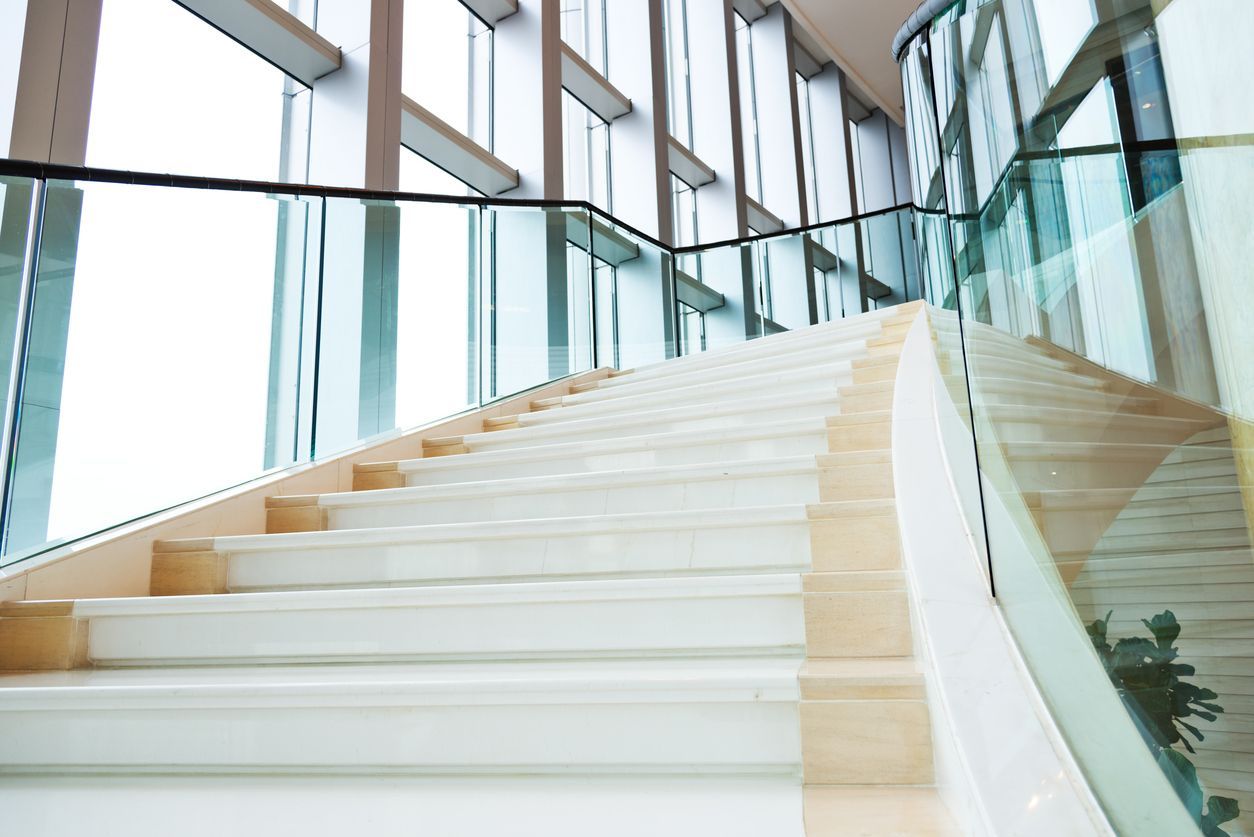For centuries, balustrades have been a staple feature of many homes and public spaces. This doesn’t mean that their designs have stayed in the past, however. Due to their wide range of modern styles and subcategories, many balustrades fit into contemporary interior design styles with ease. As both functional and decorative features, balustrades can be perfect for any home requirements.
If you’re looking to install a balustrade in your home, read on to learn some need-to-know facts and how our team at TSS Balustrade Centre can help transform your space.
The History of Balustrades
The word ‘balustrade’ has an undefined etymology, but seems to have Latin roots in French, Greek and Italian. It appears to come from the word ‘balausta’, which translates to ‘wild pomegranate flower’. Balustrades originally resembled a half-opened pomegranate flower, with its curvy and bulb-like shape.
Balustrades reached the height of their popularity during the Renaissance period, where it became an elegant design feature. It was implemented across Europe by famous artists, including popular Italian artist Michelangelo.
Famous Balustrades
- Villa Medici, Italy
- Buckingham Palace, England
- Kenwood House, England
- The Palace of Versailles, France
The Different Types of Balustrades
When considering installing a balustrade in your home, it’s good to get a sense of the variety and types available on the market today.
Read on for more details about the many materials of balustrades.
Natural Stone
When it comes to the historical iterations of balustrades, the most common material for balustrades to be made of is natural stone. Since the Renaissance period, as balustrades have become indoor staples, stone options have begun to fall out of favour. While still available to purchase from some specialist stone masons, natural stone balustrades are now found less often. They are more commonly found outside, if anywhere.
Juliet Balconies
No home feature can feel quite as romantic as a balcony, which is why Juliet balcony balustrades are fantastic options for elevating a home. These are often simple strips of railing or glass, which protrude ever so slightly from a window. It allows large windows to be opened in safety, without the concern of anyone falling out. These can be made of a variety of materials, from galvanised metal to clear glass, giving design freedom while retaining a Shakespearean feel.
Glass
Glass bannisters are a modern and aesthetically pleasing version of the historical balustrade. These sleek frameless balustrade systems are great when used on balconies, able to act as a measure of protection without ruining the view. The frameless variants are particularly popular with coastal homes for exactly this reason. The glass is usually strengthened in some way, especially when placed outside, as bad weather conditions could damage or break delicate materials.
Wooden
For a traditional balustrade style, many people opt for balustrades made of wood. These styles are great for design freedom, as they can be easily painted or stained to fit in perfectly with any home interior design style. Wood is also a particularly easy material to shape, either with the application of heat or by shaving layers off, allowing for a myriad of designs and patterns. Wooden balustrades are a great way to create a railing exclusive and unique to your home.
Galvanised
For both steel and iron balustrades, galvanisation is a brilliant way to keep the material protected from corrosion and keep them long-lasting. It is an environmentally friendly method that keeps any modular railing system protected from rust and corrosion, which makes it great for outdoor use. The galvanisation process also means the handrails are quick to assemble, high-strength and cost-effective, all while remaining low maintenance.
Aluminium Glass
While galvanised materials can be uniquely beautiful and great for creating an industrial feel, they can also be incredibly heavy, sometimes making them unsuitable for different applications. Aluminium glass, on the other hand, is about a third of the weight of steel, making it much lighter, as well as safer and easier to install. The material is still very strong and is great for outdoor use as well as indoor.
Mixed Mediums
If you can’t decide which type of balustrade you might like to opt for, a mix of materials can be a great solution. Wooden stairs and handrails can be paired perfectly with dark galvanised metals, for example, for modern modular balustrade systems.
How To Choose The Right Balustrade
The material a balustrade is made of, while important, is not the only consideration you need to think about before choosing a balustrade. To make deciding a little easier, we have listed some things to consider before installing your new balustrade below.
Know Why You Want It
It may seem obvious, but knowing why you want a balustrade is crucial to picking the right one. If it is a protective measure, for example, you might not want to opt for a type of balustrade that can easily be broken. This is also true if you have accident-prone family members, as well as small children. If you would like a balustrade for decorative purposes, acknowledge what you’re trying to highlight within the specific indoor space. For example, if you would like your stairs to be the main feature, using translucent materials is a great way to show them off.
Measure Your Space
Did you know there are regulations on having a balustrade installed in the UK? As surprising as it might be, there are a few rules that need to be followed, covering several different factors. The regulations surrounding balustrades can be found in The Building Regulations 2010 Approved Document K. This document is specifically written to protect against falling, collisions and impact, and can be located on the Government website. We have provided a few key regulations below, however, this is not an exhaustive list. Make sure to check the balustrade building regulations fully before having one installed.
Some of the important regulations include:
- The guarding of a balustrade should not allow a 100mm sphere to pass through any openings - this allows children to get through and injure themselves.
- Children should also not be able to climb on this guarding or rails.
- A continuous rail for hands should be on both sides of a stair flight, ramps, and stair/ramp landings if the stairs or ramp is 1000m or wider.
- For buildings designed for children, a second handrail should be 600mm above FFL on a ramp or pitch line.
- The top of the handrail should be 900m to 1000m from the pitch line or floor.
If you still feel unsure about whether your balustrade fits within the UK regulations, seek the advice of an expert balustrade installation company.
Seek an Expert Professional
As mentioned above, finding an expert to help you comply with regulations can be incredibly helpful. But did you know that choosing a specialist balustrade installation company can relieve other stresses too?
When installing balustrades made of delicate materials, a lot of care must be taken. Delicate materials used in modular balustrade systems are easily dropped or damaged, particularly when it comes to glass. By opting for a specialist team, you can ensure your new glass bannisters aren’t chipped or broken in any way.
When using an inexperienced company, installing a balustrade can take a lot of time, putting your staircase or ramp out of action during the process. Committing to such a big project while working full-time can throw another spanner into the works, not to mention the juggling of childcare. Luckily, our balustrade experts can get the railing installed quickly and efficiently, without taking too much time.
For some types of balustrades, installation can be dangerous. With Juliet balconies, for example, often their installation includes working at height. Inexperienced companies might offer installations they take risks to complete, putting themselves and your home at risk. Experts employed by our balustrade installation business are thankfully experienced in getting the balustrades fitted, without putting themselves at risk of dangerous injury.
What We Do
At TSS Balustrade Centre, we pride ourselves on supplying our customers with high-quality balustrades. Our professionals complete both commercial and domestic installations regularly, using their expertise to perform a service like no other. Whether you are after a glassbannister or a Juliet balcony, our friendly team are happy to help with our modular balustrade systems. View our online gallery for examples of work completed for previous satisfied customers too.
To learn more about
our systems and what we can offer you, visit
our
website
or
get in touch with
our team today.
"Our success has been defined by a combination of service level commitment and quality of products"
GET IN TOUCH
TSS Balustrade Centre
Unit E Leeway House
Leeway Industrial Estate
Newport
Gwent
NP19 4SL
Contact Us
We will get back to you as soon as possible.
Please try again later.
IMPORTANT LINKS
OPENING TIMES
- Mon - Thu
- -
- Friday
- -
- Sat - Sun
- Closed
All Rights Reserved | TSS Balustrade Centre
TUBE AND STEEL SUPPLIES LTD. is an Introducer Appointed Representative and provides a pure client Introduction through Improveasy Ltd., a company registered in England and Wales (Co. Reg. number 7807352). Registered Office: Station House, Stamford New Road, Altrincham, Cheshire, WA14 1EP. The firm is authorised and regulated by the Financial Conduct Authority (FRN 708623). The firm is authorised as a Broker, not a Lender and offers credit facilities from a panel of lenders. The credit is subject to application and status.

